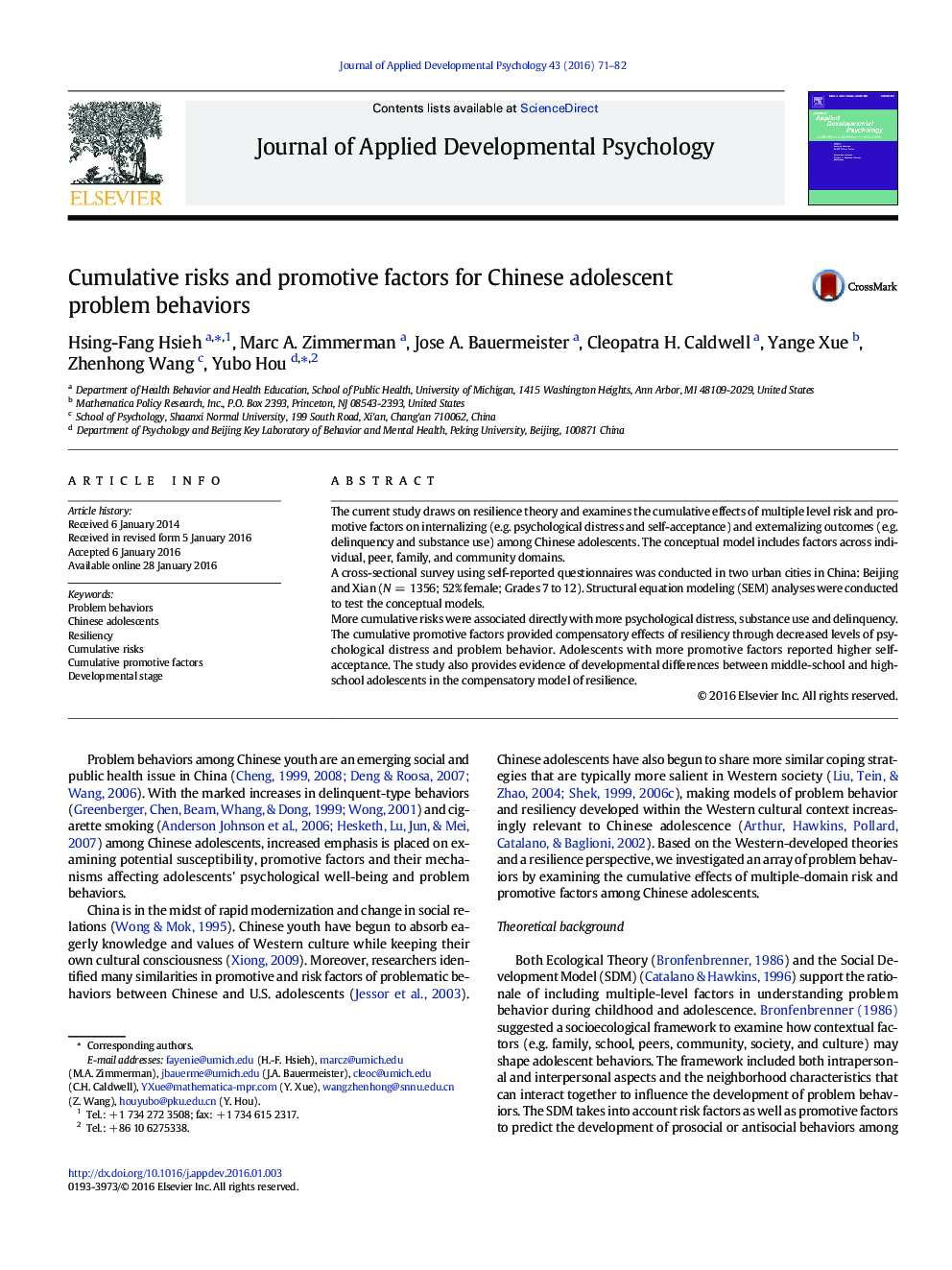| Article ID | Journal | Published Year | Pages | File Type |
|---|---|---|---|---|
| 359594 | Journal of Applied Developmental Psychology | 2016 | 12 Pages |
•This study examines the cumulative effects of risks and promotive factors on problem behaviors.•The model draws on resilience theory.•More risks were linked to higher levels of internalizing and externalizing outcomes.•Cumulative promotive factors were associated with lower levels of negative outcomes.•There were developmental differences in the compensatory model of resilience.
The current study draws on resilience theory and examines the cumulative effects of multiple level risk and promotive factors on internalizing (e.g. psychological distress and self-acceptance) and externalizing outcomes (e.g. delinquency and substance use) among Chinese adolescents. The conceptual model includes factors across individual, peer, family, and community domains.A cross-sectional survey using self-reported questionnaires was conducted in two urban cities in China: Beijing and Xian (N = 1356; 52% female; Grades 7 to 12). Structural equation modeling (SEM) analyses were conducted to test the conceptual models.More cumulative risks were associated directly with more psychological distress, substance use and delinquency. The cumulative promotive factors provided compensatory effects of resiliency through decreased levels of psychological distress and problem behavior. Adolescents with more promotive factors reported higher self-acceptance. The study also provides evidence of developmental differences between middle-school and high-school adolescents in the compensatory model of resilience.
